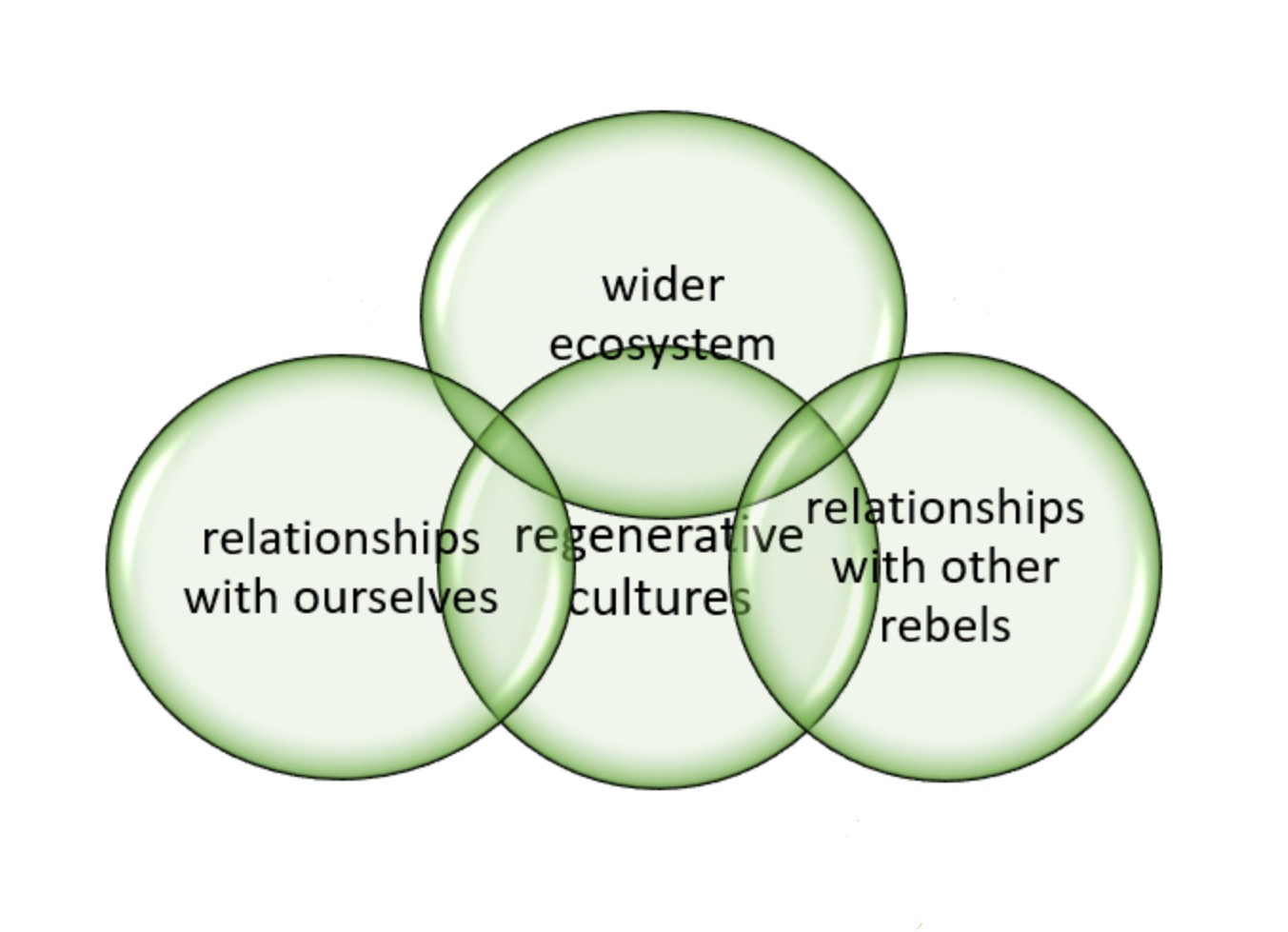The Regenerative Cultures of Extinction Rebellion
From the time of establishment Extinction Rebellion (XR) sought not just to be a movement that acted against Climate Change and loss of nature, but to do this in a particular way based on certain values and understandings. There was a recognition that the climate and ecological crisis was not just a simple mistake of a well-meaning human society but rather the inevitable result of a society that had forgotten that its whole well-being depended on a complex web of relationships within the living system of the Earth.
XR adopted a guiding vision of incorporating and moving towards 'cultures' or ways of being and acting that could be understood as regenerative. A human regenerative culture is healthy, resilient and adaptable; it cares for the planet and it cares for life in the awareness that this is the most effective way to create a thriving future for all humanity; it recognises that humans are part of the intricate web of nature and emphasises a focus on relationship — the connective tissue of the wider ecosystem.
The XRUK Regenerative Cultures circle has used the phrase ‘from ego-system to ecosystem’ i.e. moving away from prioritising the need of individuals to ‘be right’ or important and moving towards valuing all contributors to the system (person, group, movement) and to the system as a whole.
Where we divide up these pages in the toolkit into different sections - self-care, relationships with other humans, care of the wider ecosystem etc - in order to make them easier to chew over and make sense of, we want to make clear these are not fixed divisions. When focusing on one aspect, all the others are still there in the background. For example, if our self-care is out of balance, it might impact not just ourselves but other human and non-human relationships, how we exchange air with our environment, how we walk on the earth. It will also be clear that whilst the Rebel Toolkit largely addresses how we work within the XR Movement, Regenerative Cultures is both inward looking (within the movement) and outward facing, (aware of interconnections outside XR).
Recognising that cultures that are regenerative (healthy, resilient and adaptive), as local ecosystems, they are reflective of the place and the context and may well change over time. For example, we might agree that a culture of listening is an important value in a regenerative relationship, but it could be integrated in different ways — we might invite a pause for reflection in a meeting or ask that no-one is interrupted verbally or with hand signals whilst speaking; we might agree to use a talking stick or take turns in a conversation or to hold a more formal listening space. A regenerative culture takes account of needs, abilities and privilege to support equity.
Also as in ecological systems, a regenerative culture evolves, it may need to change over time in order to be flexible and adapt to changing circumstances.
Here you can see "Why Regenerative Cultures? Decolonialising, diversity & the reGeneration rising" - Daniel Wahl.

